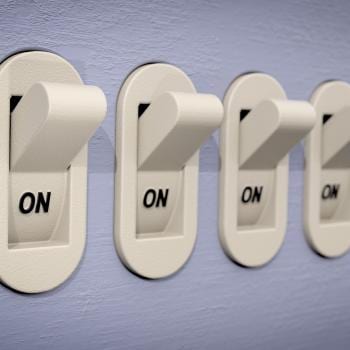I recently walked out of a local electronics store in some frustration. I have an older inkjet printer that needed new ink cartridges. Now, ink cartridges are some of the biggest consumer rip-offs ever devised, so I wasn’t in a great mood when I walked in. My irritation grew when I realized that my aged printer does not have its exact model number indicated on any of the multitudes of printer cartridges available.
Two different sales staff tried to help; each came up with a different solutions. Both admitted that if I bought a cartridge, put it in the printer and it didn’t work, that I could not bring it back—possibly wasting a lot of money. Only solution: go back to the office, open the printer case, hope the exact model number of the cartridges I need were there, and then come back and buy the exact match.
Result? First, I have resolved to purchase a different printer, and never, ever again touch one made by that particular manufacturer. Enough is enough. Second, I probably will give it two or three thoughts before I go back into that particular consumer electronics store again. It really isn’t their fault—but I am disenchanted.
I find it easy to decide to change both printer brands AND store preferences. Printers and stores abound, all competing mightily for my business. I can and will freely hop from place to place, brand to brand, price to price. All it takes is one bad experience and I’m out of there.
That’s a lot of pressure to please. Retailers know it. Manufacturers know it. Designers know it. And everyone hops frantically like so many adrenaline-fed bunnies trying to please us increasingly fickle consumers so we’ll stay loyal to their brand.
As the Bizarro cartoon above says, “they are huge now, but I’ve been a fan since Monday.” And next Monday, someone else will be huge, someone else will be pleasing the fickle crowds.
This is why a consumer-led church builds on a problematic foundation. The church is not called to please. We are called to make, or I prefer, “shape” disciples of Jesus Christ.
The moment we buy into the consumer-led model of church growth, using business success as our model, we have inevitably left that mission of shaping disciples behind.
Why? Because the moment we displease someone by . . .
- offering a worship service that is not quite perfect or as good as the one down the street
- presenting a nursery that doesn’t have the latest in child check-in/check-out procedures
- stepping on someone’s toes theologically
- insisting that people work through their conflicts with each other in the name of a higher calling
- asking people to follow Jesus to the cross and forgive their enemies and do good to them so they might really experience the resurrection
. . . we run a huge chance of losing our “customers.”
At its essence, Christianity is anything but a consumer-pleasing religion.
Jesus did not please very many people. The larger crowds hung around hoping for a feeding or healing miracle. When Jesus disappointed, they quickly dispersed. They were the first century equivalents of our consumer religious folks. Even the closest of Jesus’s disciples were in it for themselves—they did want those most powerful right and left hand seats in the kingdom, after all.
Note: This is part of a three part series. Part two is here; part three is here.











